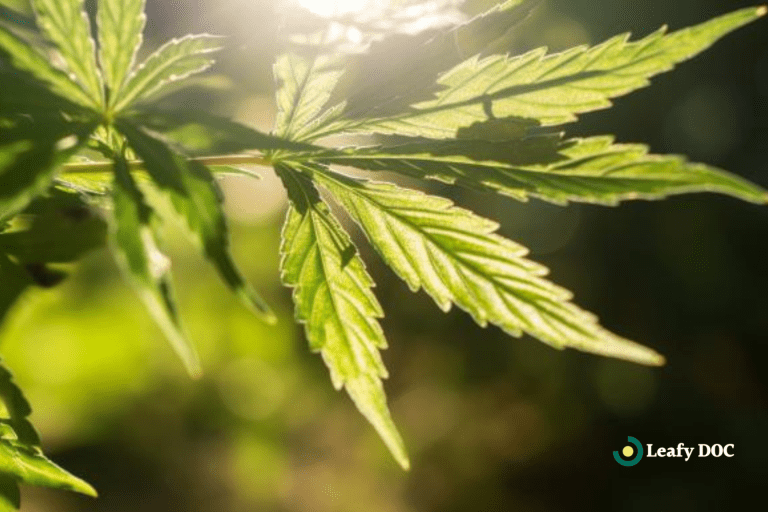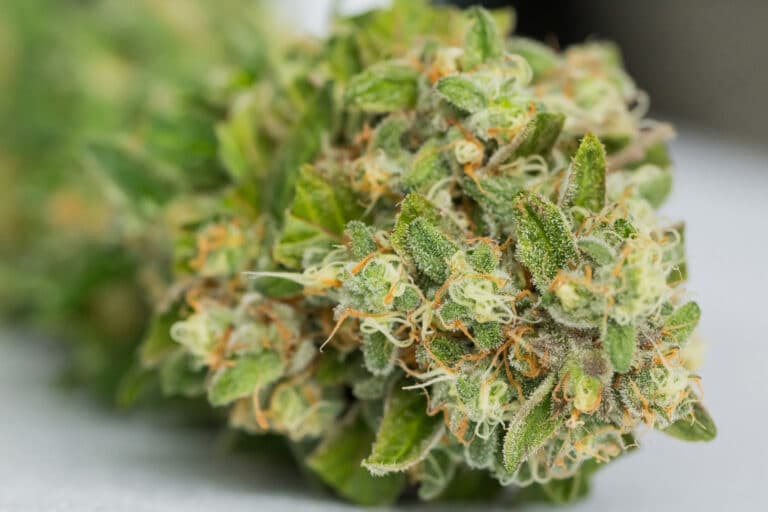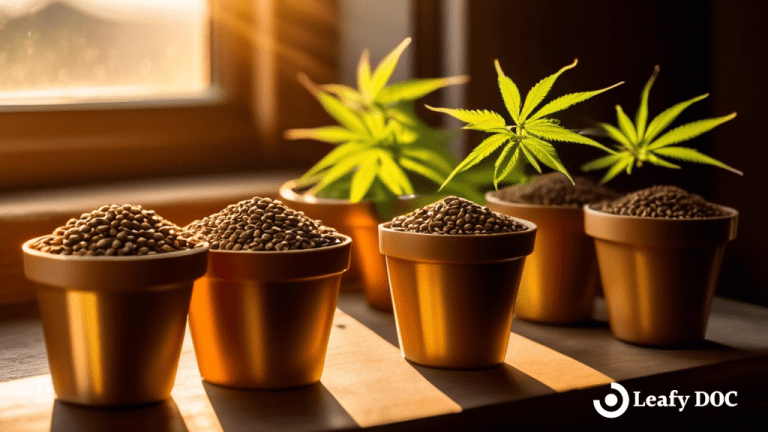Is Marijuana A Blood Thinner?
by Haley Mills · October 24, 2023
Uncover the truth about marijuana’s blood thinning properties and their potential impact on your health. Click now to learn more and stay informed!

Marijuana, also known as cannabis, has been a topic of much debate and controversy in recent years. With the growing acceptance and legalization of marijuana in various parts of the world, there has been an increased interest in understanding its effects on the body.
One question that often arises is whether marijuana acts as a blood thinner. This article will delve into the scientific evidence and research to explore the relationship between marijuana and blood thinning properties.
While there is limited research specifically examining the blood-thinning properties of marijuana, some studies have suggested a potential link between marijuana use and alterations in blood clotting factors. However, the research in this area is still in its early stages, and more studies are needed to establish a clear connection between marijuana and blood thinning.
Key Takeaways
- Marijuana contains cannabinoids that interact with the body’s endocannabinoid system.
- Some studies suggest a potential link between marijuana use and alterations in blood clotting factors.
- Marijuana’s effects on blood clotting can vary depending on factors such as dose, frequency of use, age, overall health, and other medications being taken.
- It is recommended to consult with a healthcare professional before using marijuana or any other substance for blood thinning purposes.
Understanding the Effects of Marijuana on the Body
Yes, marijuana can indeed impact the body, and one question that often arises is whether it acts as a blood thinner.
Regarding the side effects of marijuana on cardiovascular health, research suggests that marijuana can have both positive and negative effects. On the one hand, some studies have found that marijuana use may be associated with an increased heart rate and an elevated risk of heart attack, particularly in individuals with pre-existing cardiovascular conditions. This suggests that marijuana may have adverse effects on cardiovascular health.
Some evidence suggests that marijuana may have blood-thinning properties. Blood thinners, or anticoagulants, are medications that help prevent blood clots by decreasing the blood clotting ability. Some studies have found that certain compounds in marijuana, such as THC and CBD, can affect the blood’s ability to clot. However, it’s important to note that the blood-thinning effects of marijuana are not as strong as those of traditional medications like aspirin or warfarin.
What Are Blood Thinners and When Are They Prescribed?
Blood thinners are medications that help prevent blood clots from forming or growing larger. While they don’t dissolve existing clots, they reduce the risk of serious health problems caused by blocked blood vessels.
There are two main types of blood thinners:
- Anticoagulants, which slow down clotting by targeting specific clotting factors in the blood.
- Antiplatelets, which prevent platelets from clumping together to form clots.
Doctors commonly prescribe blood thinners to manage the following conditions:
- Atrial fibrillation: An irregular heartbeat that raises the risk of stroke.
- After heart valve replacement: To prevent clots on artificial valves.
- Congenital heart defects: Especially when clot-related complications are a concern.
- Post-surgical recovery: To lower the chance of blood clots after surgery.
- Other cardiovascular conditions: Where the risk of clotting is elevated.
The goal of using blood thinners is to keep blood flowing freely and reduce the risk of life-threatening events like heart attacks, strokes, and pulmonary embolisms.
Exploring the Relationship Between Marijuana and Blood Thinning
Some studies suggest that certain cannabinoids, such as THC, may have antiplatelet effects, meaning they can reduce the formation of blood clots. However, other studies have found conflicting results.
While clinical research is still expanding, we lack the extensive body of evidence needed to conclusively determine how cannabinoids affect blood coagulation. For instance, a 2007 study conducted on rats indicated that THC and CBN might hinder blood coagulation. In contrast, a 2004 study suggested that THC exhibited potential pro-coagulatory effects.
Adding to the complexity, more recent research involving rhesus macaques discovered that THC could reduce platelet aggregation, which plays a crucial role in forming blood clots. This study highlighted that THC lowered the production of thromboxane, a lipid involved in clotting, yet did not alter the clotting time itself.
In summary, while some evidence hints at cannabinoids influencing blood coagulation, the findings are varied and inconclusive, underscoring the need for further research in this area.
What the Research Says About THC and Blood Clotting
Research into marijuana’s effects on blood clotting is still evolving, but early findings suggest that THC may influence how platelets behave in the body.
One study published in the Journal of Thrombosis and Haemostasis found that THC can inhibit platelet aggregation, an essential step in blood clot formation. Similarly, the Journal of Pharmacology and Experimental Therapeutics reported that certain cannabinoids may reduce platelets’ ability to stick together, which could point to potential blood-thinning effects.
However, not all findings are consistent. A 2007 rat study showed that cannabinoids like THC and CBN might impair blood coagulation, while a 2004 study observed possible pro-coagulatory effects. Adding to the complexity, a study involving rhesus macaques found that THC reduced the production of thromboxane (a clotting lipid), yet it didn’t change clotting time overall.
These mixed results highlight the need for more research to understand whether marijuana truly acts as a blood thinner, and under what conditions.
Research and Studies on Marijuana’s Blood Thinning Properties
Some studies have found that marijuana use can increase heart rate and blood pressure, both risk factors for cardiovascular disease. Additionally, marijuana use has been associated with an increased risk of blood clots, which can lead to serious conditions such as deep vein thrombosis or pulmonary embolism.
Comparing marijuana to traditional blood-thinning medications, such as aspirin or warfarin, is difficult because these medications work in different ways. Traditional blood thinners work by inhibiting the formation of blood clots, while marijuana may affect blood clotting through different mechanisms.
There may be some potential benefits to marijuana’s blood-thinning properties, but there are also risks associated with its use. Marijuana can have a range of effects on the body, so speak with a healthcare professional before using it for any medical purposes, including as a blood thinner.
Potential Benefits and Risks of Marijuana as a Blood Thinner
When comparing marijuana to traditional blood thinners, such as aspirin or warfarin, we should consider the differences in their mechanisms of action and overall safety profiles. Conventional blood thinners work by inhibiting the production of certain proteins involved in the clotting process, thereby reducing the risk of blood clots. On the other hand, marijuana’s potential blood thinning properties are thought to be linked to its ability to relax blood vessels and lower blood pressure. However, the exact mechanisms by which marijuana may thin the blood are still not fully understood.
In terms of the legality and regulation of marijuana as a blood thinner, it’s important to note that the use of marijuana for medicinal purposes is legal in some countries and states, while it remains illegal in others. Additionally, the regulation of marijuana as a medical treatment can vary widely from one jurisdiction to another. It’s crucial for individuals considering marijuana as a blood thinner to consult with their healthcare provider and to adhere to the laws and regulations of their specific jurisdiction.
Marijuana and Medication Interactions
Marijuana can interact with common blood thinners like warfarin, increasing the risk of bleeding. While cannabis may have mild anticoagulant properties, it is far less effective than traditional medications like warfarin or aspirin in thinning the blood.
A 2016 study found that individuals using cannabis while on warfarin may need to reduce their dose by up to 30% to maintain safe drug potency. Marijuana can also amplify the effects of statins, medications used to manage cholesterol, which may lead to dangerous drops in blood pressure.
According to cardiologist Dr. Muthiah Vaduganathan, cannabis is broken down by the same liver enzymes that metabolize both blood thinners and statins. This overlap can interfere with how these medications work, potentially making them more or less effective than intended.
If you’re using cannabis while taking any prescription medication—especially blood thinners or statins—speak with your healthcare provider. They can monitor your response and adjust your treatment plan to avoid unwanted side effects.
Potential Risks of Combining Cannabis with Blood Thinners
While marijuana may have mild anticoagulant effects, it’s not as effective as prescription blood thinners, and combining the two can raise serious safety concerns.
For example, cannabis can alter the potency of medications like warfarin. A 2016 study found that patients using cannabis while on warfarin might need to reduce their dose by up to 30% to avoid dangerous changes in how the drug works.
Cannabis may also interact with statins, cholesterol-lowering drugs, by increasing their potency. This could lead to a significant drop in blood pressure if not monitored closely. According to cardiologist Dr. Vaduganathan, cannabis and these medications are metabolized by the same liver enzymes, which means using them together can disrupt how the drugs function.
If you’re considering cannabis use while on any blood-thinning medication, speak with your doctor. They can adjust dosages and help manage risks safely.
Consulting with a Healthcare Professional for Personalized Advice
Consulting with a healthcare professional is essential for anyone considering marijuana as a blood thinner. While limited evidence suggests that marijuana may have blood-thinning properties, research remains inconclusive. A doctor can evaluate your medical history, current medications, and potential risks before offering guidance.
There are well-established blood thinning options, such as anticoagulants and antiplatelet drugs, commonly prescribed for conditions like atrial fibrillation or deep vein thrombosis. These have been studied extensively and are generally more reliable than cannabis for managing clotting risks.
Importantly, marijuana can interact with other medications, including blood thinners and statins. A 2016 study on warfarin found that cannabis users may require up to a 30% dose reduction to avoid increased drug potency. Cannabis has also been shown to enhance the effects of statins, potentially lowering blood pressure to risky levels.
According to cardiologist Dr. Muthiah Vaduganathan, the same liver enzymes that break down statins and blood thinners are responsible for metabolizing cannabis. Using them together can alter drug efficacy, making medical supervision critical.
If you’re using cannabis while taking blood thinners or statins, let your healthcare provider know. They can monitor your response and adjust dosages if needed to ensure your treatment plan remains safe and effective.
Frequently Asked Questions
Can marijuana be used as a substitute for traditional blood thinners?
The efficacy of marijuana as a blood thinner compared to traditional options is still being researched. However, potential legal and ethical issues surrounding its use as a blood thinner exist due to varying regulations and concerns about its psychoactive effects.
Are there any potential side effects or risks associated with using marijuana as a blood thinner?
There are potential benefits of using marijuana as a blood thinner, such as its anti-inflammatory properties. However, the legality and regulation surrounding its use make it essential to consult a healthcare professional before considering it as a treatment option.
How does marijuana interact with other medications commonly used as blood thinners?
Potential interactions between marijuana and common blood thinners may include increased bleeding risk. While marijuana may have some anticoagulant effects, it is not as effective as traditional medications in terms of blood thinning.
Is there a specific dosage or consumption method recommended for using marijuana as a blood thinner?
There is limited evidence on the potential benefits of using marijuana as a blood thinner. Traditional blood thinners have been extensively studied and proven effective, while marijuana’s effectiveness is still uncertain.
Are there any specific medical conditions or factors that would make using marijuana as a blood thinner unsafe or ineffective?
Potential drug interactions between marijuana and traditional blood thinners are not well understood. Some medical conditions, such as bleeding disorders or liver disease, may make using marijuana as a blood thinner unsafe or ineffective. Further research is needed.
Last Updated: May 30, 2025
Get Approved for Your Medical Marijuana Card in Minutes!

Get Your Medical Card
Connect with a licensed physician online in minutes

Like This Article?
Share with your friends
Table of Contents
Keep Reading
-
Learn The Art Of Cooking With Cannabis: Cannabis Cooking Classes
Unleash your inner chef with our Cannabis Cooking Classes and master the art of creating delectable dishes infused with cannabis. Elevate your culinary skills today and join us to unlock the secrets of cannabis-infused cuisine! Start cooking now!
-
Does Weed Expire? How to Tell When Cannabis Goes Bad
Weed expires eventually, but it depends on how you store it. Learn the best ways to keep your weed fresh for when you need it.
-
Effective Seed Germination Methods For Successful Cannabis Cultivation
Discover the ultimate guide to seed germination methods for successful cannabis cultivation. Uncover expert tips and tricks to maximize your yield and quality. Start growing like a pro today!



